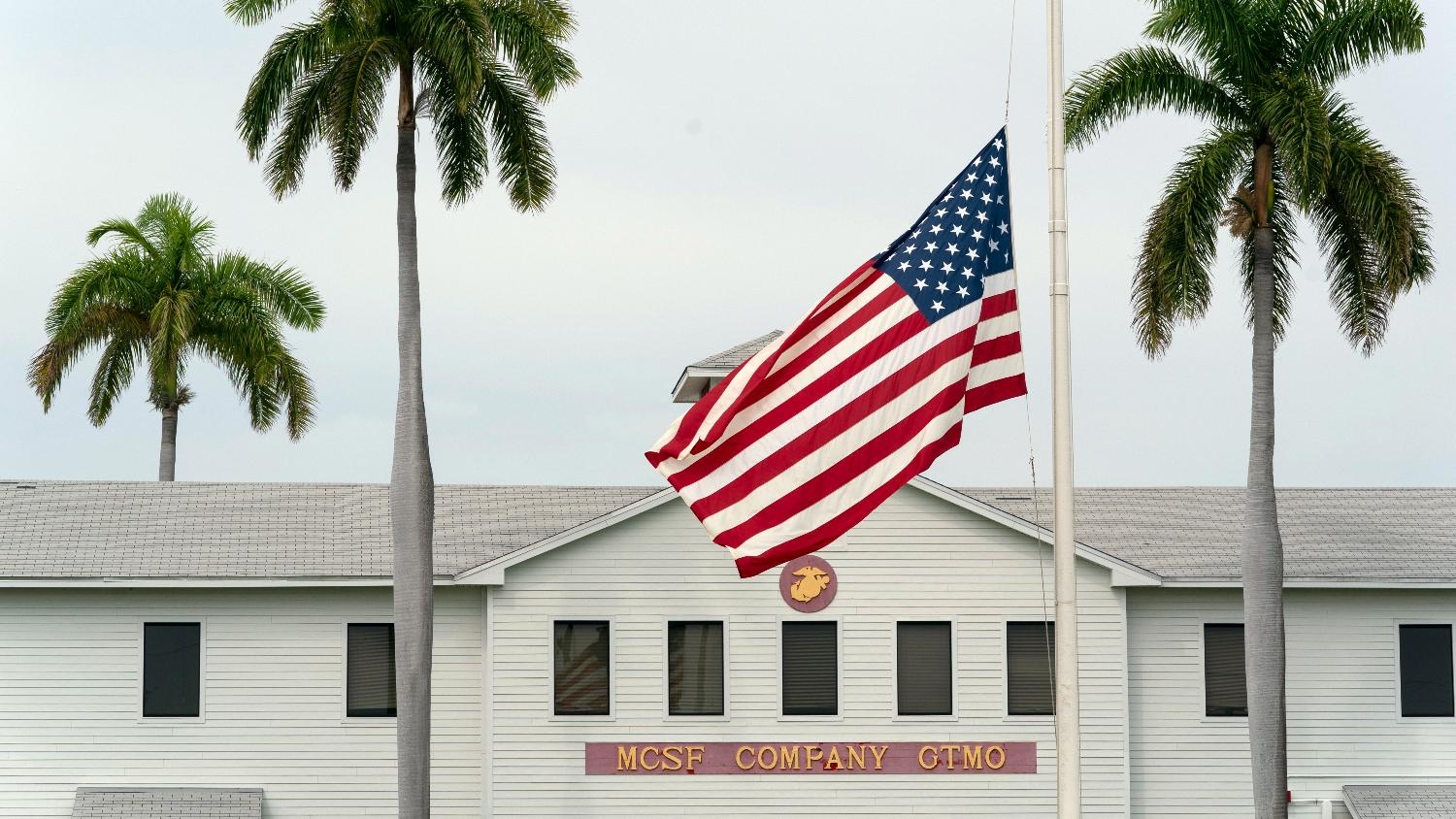Guantanamo Bay: Brothers released after two decades of detention plan to sue

The lawyer for two brothers that were released from Guantanamo Bay on Friday is planning to sue over their two-decade-long detention without charge.
Abdul, 55, and Ahmed Rabbani, 53, two Pakistani nationals of Rohingya Burmese ethnic background, on Friday arrived in the city of Karachi, Ahmed's lawyer told MEE. The brothers were released from the Guantanamo Bay detention centre, where they had been held without charge for nearly two decades.
"It is a long walk up from the depths of Guantanamo and one thing I will be doing in Karachi is getting them therapy," said Clive Stafford Smith, a human rights lawyer and director of the 3DCentre, a legal advocacy group based in Dorset, England.
Smith, Ahmed's lawyer, told MEE that while the two have finally been released, justice continues to elude them after spending decades in detention without being charged with a crime.
"In terms of the future, I will sue for them, but their chance of compensation is slim. Neither will they get a simple apology."
New MEE newsletter: Jerusalem Dispatch
Sign up to get the latest insights and analysis on Israel-Palestine, alongside Turkey Unpacked and other MEE newsletters
The brothers were captured in September 2002 by Pakistani security services in the city of Karachi and transferred to CIA custody for 545 days, before being sent to Guantanamo in 2004.
During his time in CIA custody, Ahmed Rabbani was one of the detainees subject to the agency's torture programme, known as the "enhanced interrogation programme", according to the 2014 Senate Torture Report. The report also found that Rabbani was the victim of mistaken identity and was wrongly thought to be a high-ranking al-Qaeda militant called Hassan Ghul.
He is listed among a group of 17 detainees who were subjected to "unauthorised" interrogation techniques without the knowledge of the CIA's headquarters.
"The tragedy of Ahmed Rabbani’s two decades of unjust imprisonment exemplifies how far the USA strayed from its founding principles during the 'war on terror' era," Maya Foa, director of Reprieve US, said in a statement provided to MEE.
"His interrogators knew they had the wrong man but tortured him anyway, and then built a case against him using the false testimony of other torture victims to justify his indefinite detention."
The two brothers will be reunited with their families, and the younger brother Ahmed will for the first time meet his son Jawad, who was born after he was captured. Middle East Eye spoke to Jawad last year about never having met his father.
Moves towards emptying Guantanamo
During their time at Guantanamo, the younger brother Ahmed became a prolific artist. According to the Associated Press, he was expected to bring some of his artwork with him when he was released. Earlier this month, the Pentagon lifted a Trump-era ban on releasing the artwork of Guantanamo detainees.
Smith told MEE that there will be an art show in Karachi later this year, with Ahmed and several Pakistani artists inspired by him.
Not much is known about the older brother, Abdul. Both brothers were cleared for release by the Biden administration in 2021.
They were the latest inmates to be released from US custody, as the country moves towards emptying and shutting down the prison.
The releases come months after 75-year-old Saifullah Paracha was freed from the prison and also sent home to Pakistan.
Thirty-two detainees remain at Guantanamo Bay, including 18 that are eligible for transfer - if stable third-party countries are found that will take them, the Pentagon said.
Many are from Yemen, a country considered too plagued with war and armed groups, and too devoid of services for freed Yemeni prisoners to be sent there.
Nine of the inmates are defendants in slow-moving military-run tribunals. Two others have been convicted.
One of those who had been convicted, Majid Khan, was also released this month and transferred to Belize.
Khan was the first former prisoner of the CIA's clandestine overseas prison network to openly testify about his treatment there. He says he was waterboarded, sexually abused, suspended naked from a ceiling beam for long periods, and subject to sleep deprivation for days.
Middle East Eye delivers independent and unrivalled coverage and analysis of the Middle East, North Africa and beyond. To learn more about republishing this content and the associated fees, please fill out this form. More about MEE can be found here.






